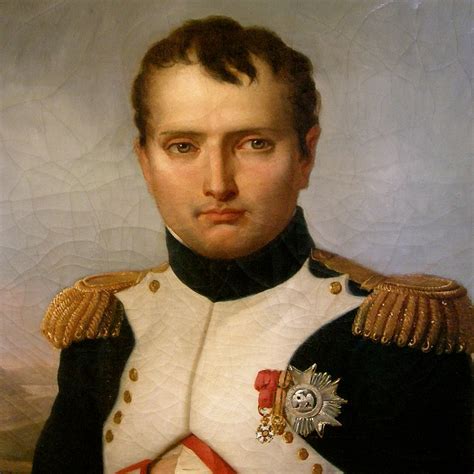Explore the early life, rise to power, military campaigns, reforms, and downfall of a historical figure and their lasting legacy.
Early Life and Education
Contents
Napoleon Bonaparte was born on August 15, 1769, on the island of Corsica, which was ruled by the French at the time. His father was a lawyer, and his family was of noble Italian ancestry. Napoleon attended a school in mainland France and then went on to study at the military academy in Brienne. Despite being mocked for his Corsican accent and background, he excelled in his studies, particularly in mathematics and history. His education provided him with a strong foundation for his future military and political career.
After graduating from the military academy in Paris, Napoleon began his military career at the age of 16. He quickly rose through the ranks and demonstrated his strategic and tactical abilities in various military campaigns. In addition to his military training, Napoleon was also well-read in the works of Enlightenment philosophers, which influenced his views on politics and society.
Although his early life was marked by economic struggles and social discrimination, Napoleon’s education and military training prepared him for the challenges and opportunities that lay ahead. His ambition, intelligence, and determination would eventually lead him to become one of the most influential figures in European history.
Rise to Power
Napoleon Bonaparte rose to power through a combination of military achievements, political maneuvering, and sheer determination. Born on the island of Corsica in 1769, Napoleon was sent to mainland France to be educated at the age of nine. He quickly developed a passion for the military and excelled at the prestigious École Militaire in Paris. After graduating, he joined the French army and rose through the ranks due to his strategic acumen and leadership abilities.
During the chaos of the French Revolution, Napoleon’s rise to power accelerated. He gained recognition for his successful military campaigns in Italy, where he displayed remarkable tactical skills and became a national hero. Capitalizing on his growing popularity, Napoleon staged a coup d’état in 1799, overthrowing the existing government and establishing himself as the First Consul of France.
With shrewd political maneuvering and a keen eye for opportunity, Napoleon consolidated his power and eventually declared himself Emperor of the French in 1804. His rise to power was characterized by his ability to exploit the weaknesses of the existing political system and his ambition to establish himself as a dominant figure on the European stage.
Ultimately, Napoleon’s rise to power was a testament to his unwavering determination and strategic cunning. By leveraging his military successes and capitalizing on the turbulent political climate of the time, he was able to ascend to the highest echelons of power in France.
Military Campaigns
Napoleon was known for his strategic military campaigns that solidified his reputation as a formidable military leader. One of his most famous military campaigns was the Italian Campaign, where he commanded the French army in a series of battles against the Austrian Empire. His victories in this campaign ultimately led to the Treaty of Campo Formio, which solidified France’s control over northern Italy.
In addition to the Italian Campaign, Napoleon also led successful military campaigns in Egypt and Syria. Despite facing challenges such as harsh desert conditions and conflicts with the British navy, Napoleon managed to secure key victories in these regions, further expanding his influence and reputation as a military tactician.
Perhaps one of Napoleon’s most well-known military campaigns was the Napoleonic Wars, a series of conflicts between France and various European powers. These wars saw Napoleon lead his armies to numerous victories, effectively expanding the French Empire to its greatest extent. However, these military campaigns also brought about substantial losses and casualties, eventually leading to Napoleon’s downfall.
Overall, Napoleon’s military campaigns are a testament to his strategic prowess and leadership on the battlefield. His ability to outmaneuver and defeat his opponents solidified his legacy as one of history’s greatest military commanders.
Reforms and Policies
Napoleon’s rule was marked by a number of significant reforms and policies that had a lasting impact on France and beyond. One of his most notable reforms was the creation of the Napoleonic Code, a comprehensive civil code that laid the foundation for modern legal systems around the world.
In addition to legal reforms, Napoleon also implemented major changes in education, including the establishment of a state-run system of lycees and the reorganization of university education. These reforms aimed to ensure that all citizens, regardless of social class, received a quality education.
Furthermore, Napoleon’s policies extended to the economy, as he centralized financial and economic power through the establishment of the Bank of France and the creation of a stable currency. His policies also promoted industrialization and infrastructure development, leading to significant improvements in transportation and communication systems.
Another key aspect of Napoleon’s reforms and policies was his approach to religion. In 1801, he signed the Concordat with the Catholic Church, establishing a formal relationship between the state and the church. This agreement allowed for freedom of religion while also recognizing Catholicism as the religion of the majority of the French population.
Overall, Napoleon’s reforms and policies were aimed at centralizing power, standardizing laws and institutions, and promoting social and economic progress. Despite the controversial nature of his rule, many of these reforms had a lasting impact and contributed to the modernization of France and other countries influenced by his policies.
Downfall and Legacy
After a series of defeats in the Napoleonic Wars, Napoleon Bonaparte faced his ultimate downfall. He was exiled to the island of Elba, where he lived in relative obscurity for less than a year before making his dramatic return to power in what is known as the Hundred Days. However, his reign was short-lived once again, as he suffered a decisive defeat at the Battle of Waterloo, leading to his second and final exile, this time to the remote island of Saint Helena.
Despite his ultimate defeat, Napoleon’s legacy continues to loom large in history. His military tactics and strategies revolutionized modern warfare, and his Napoleonic Code influenced legal systems around the world. Additionally, his ambitious reforms and policies left a lasting impact on the territories he conquered, and his vision of a united Europe sparked nationalist movements that would shape the continent for centuries to come.
However, Napoleon’s legacy is not without controversy. His imperial ambitions and aggressive expansionism led to widespread suffering and loss of life, and his autocratic rule has been criticized for its suppression of individual liberties. Despite these criticisms, Napoleon remains a figure of fascination and debate, with scholars and historians continuing to analyze and interpret his complex and multifaceted legacy.












